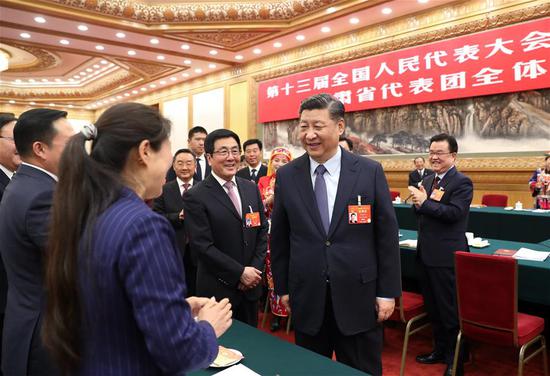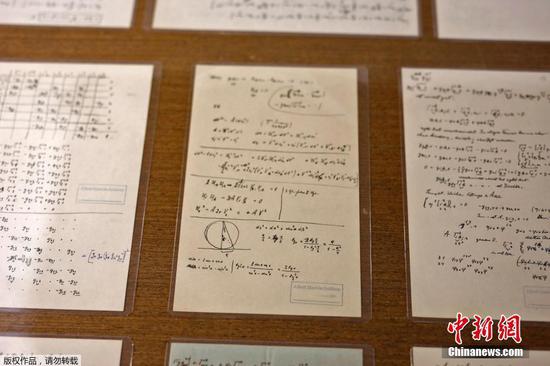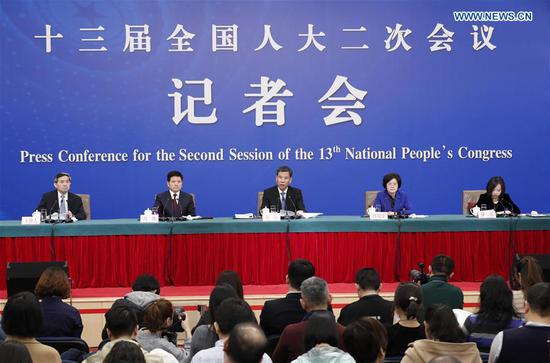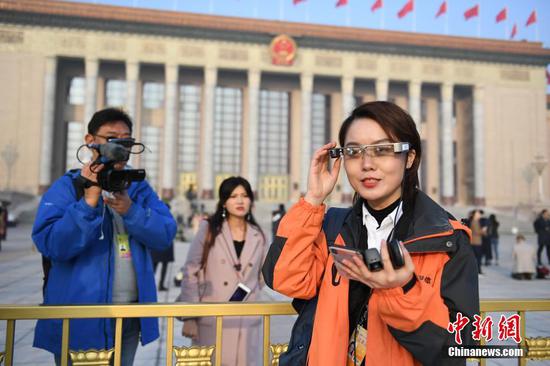
A villager in Jingxing village, Lingwu city, Northwest China's Ningxia Hui autonomous region, feeds chickens distributed by local government, Aug 28, 2017. (Photo/Xinhua)
Poverty reduction measures were highlighted by deputies to the National People's Congress from Gansu Province when President Xi Jinping joined their panel discussion on Thursday.
Tang Xiaoming, an NPC deputy and Party secretary of the city of Dingxi, said that through measures like making solid alleviation plans for every poor family, local government is making full efforts to implement Xi's instructions to reduce poverty.
In February 2013, Xi, also general secretary of the Communist Party of China Central Committee and chairman of the Central Military Commission, visited poor families in the village of Yuangudui in Dingxi's Weiyuan county, where he urged local officials to make poverty reduction the top priority in their work.
"The general secretary's important instructions on poverty reduction are being implemented fully in Gansu," Tang said, adding that 5.81 million people in the province have been lifted out of poverty since 2013.
Dingxi has put forward policies to support the villagers' raising of cattle and sheep and planting of vegetables, fruits, potatoes and herbs in order to achieve the goal of eliminating poverty completely by 2020, he said.
Liang Qianjuan, an NPC deputy from the village of Shitan in the Huixian county township of Shuiyang, said China's booming e-commerce has brought numerous opportunities for the people to increase their incomes in poor areas.
"Some villagers managed to sell their apples, juice, soybean products and garlic to Canada and the Maldives," said Liang, who owns an online shop selling agricultural products such as olive oil, dried mushroom and honey.
Dong Caiyun, an NPC deputy and headmistress of Chuimatan Primary School in Jishishan county, said that the government has placed great emphasis on education in poverty-stricken places in recent years.
"The schools in rural areas now have more advanced teaching facilities, and the gap between rural and urban places has been narrowed," she said.
Teachers' salaries in impoverished regions have become higher than the average of local civil servants' salaries, she added.


















































